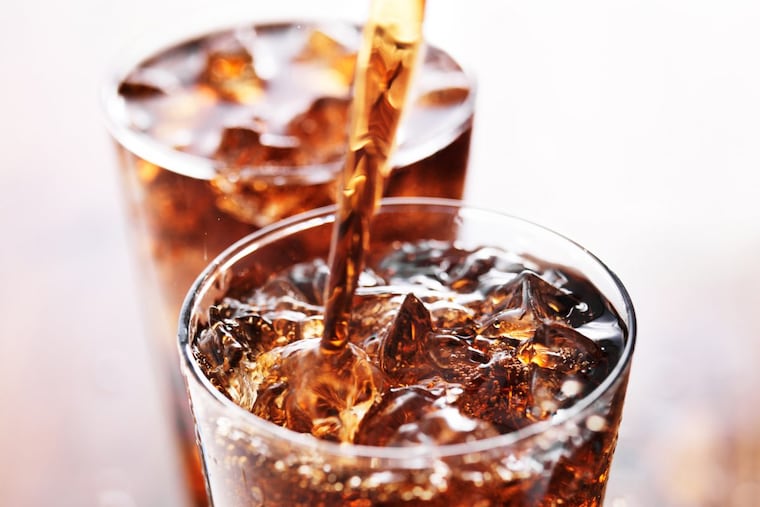This cardiologist wants his family to cut back on diet soda. Should yours, too?
Recent news about artificially sweetened beverages inspired this physician to scour the medical literature. Here's what he learned.

A recent study from Canada has the potential to rock my family's world. For years, when there has been a happy occasion – or even some reason to despair – our go-to beverage has been Diet Coke, especially dispensed from a soda fountain. Perhaps a little odd, but certainly harmless.
But this new study suggests problems with the non-nutritive (aka artificial) sweeteners in diet drinks. What could be bad about something that allows us to decrease sugar consumption, still get the sweet taste that we crave, and perhaps lose a pound or two?
This study reviewed all the prior trials on sweeteners to see whether they helped with weight loss and whether they had possible bad long-term effects.
I would not ask my kids to give up diet sodas easily, based on just one report. So I looked at other evidence, as well. Here is what I found, the good and the bad:
Non-nutritive sweeteners can change the way the brain senses sweetness, and possibly lead to increased cravings for sweets.
They have been associated with increased body mass index (weight gain) and an increase in cardiac risk.
One study suggested a 21 percent increase in the risk of developing type 2 diabetes with higher consumption of these sweeteners, approximately half the risk seen with sugar-sweetened beverages. Another indicates that daily consumption of diet soda was associated with a 36 percent greater relative risk of metabolic syndrome and a 67 percent greater relative risk of type 2 diabetes compared with non-drinkers. But note: Relative risk is not the same as absolute risk – if you had low risk to start with this may not matter that much to you.
Estimates suggest that 85 percent of Americans use artificial sweeteners. Of those who do not, just 10 percent say they refrain because of health concerns. The major uses are in soft drinks, cereals, and sugar-free desserts such as ice cream, and almost one-half of us report daily use.
There are six types approved by the FDA: saccharine (sold mostly as Sweet 'n' Low), aspartame (sold as Equal and Nutrasweet), sucralose (sold as Splenda), neotame, acesulfame-K (sold as Sweet One), and stevia (sold as Truvia). Artificial sweeteners are 300 to 13,000 times sweeter than sugar.
The FDA says all approved sweeteners are safe as long as they are used in moderation. This is defined as no more than 23 packets a day of Splenda, 45 packets a day of Sweet 'n' Low, or 75 packets a day of Equal. In each can of Diet Coke, there is the equivalent of 5 to 6 packets of aspartame (185 mg), 45 mg of acesulfame, and 60 mg of phosphoric acid. The latter causes erosion of tooth enamel, even in small amounts. One small study claimed that diet soda could have the same effect on your teeth as methamphetamine or crack cocaine.
Younger children may compensate for the lower calories in artificially sweetened drinks by increasing food intake. A study in the New England Journal of Medicine in 2010 did suggest that replacing sugar-containing beverages with noncaloric artificially sweetened beverages reduced weight gain and fat accumulation in normal-weight children (who may or may not react in the same way overweight children would), and was not sponsored by industry.
Sugar has been shown to cause release of "feel-good" chemicals in the brain in a manner similar to addictive drugs. More research is needed to see whether artificial sweeteners do the same.
The debate over artificial sweeteners and cancer goes back to the 1970s, when the Food and Drug Administration warned that saccharine could cause bladder cancer in rats. Subsequent studies have shown no such risk, and according to the current medical literature, the risk that artificial sweeteners cause cancer seems to be negligible.
Another recent Canadian study found a higher risk of depression in women who drank more than one diet soda a day, especially if they also added artificial sweeteners to coffee or tea.
So, what is the bottom line? The FDA comment that up to 75 packets a day is safe seems ridiculous, and likely based on animal studies, as it is unlikely many people really consume that much.
From my research, it appears that occasional consumption is probably OK, but you may be taking in more than you realize, because artificial sweeteners are found in many products we use on a daily basis. Many of the studies suggesting they are perfectly safe have industry ties. Newer, non-industry data suggest otherwise.
There is no doubt that water is a healthier option than sweetened soda, whether or not it contains sugar. If you miss the carbonation, try adding a bit of fruit juice to seltzer or club soda. After learning more about sweeteners, I hope there will be fewer family trips for diet fountain sodas by the Becker family.
David Becker, M.D., is a board-certified cardiologist at Chestnut Hill Temple Cardiology, and associate director of preventive cardiology at the Temple Heart and Vascular Institute.